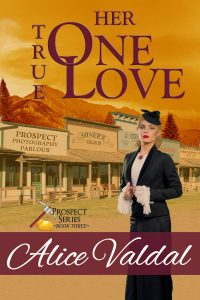 Twenty years ago, when book clubs were all the rage, my friend and I decided to start one. We had few rules. One was that members had to live in the neighbourhood. Our winter nights are very black and often pouring rain. No one wanted to travel a long dark highway in November. The second rule was about the reading list. We wanted to push ourselves to read outside our usual book choices so we agreed that the reading list had to have books from a variety of genres. So, our choices included one each from romance, mystery, historical, biography, travel, hobbies, best seller, classic, children’s . . . you get the idea.
Twenty years ago, when book clubs were all the rage, my friend and I decided to start one. We had few rules. One was that members had to live in the neighbourhood. Our winter nights are very black and often pouring rain. No one wanted to travel a long dark highway in November. The second rule was about the reading list. We wanted to push ourselves to read outside our usual book choices so we agreed that the reading list had to have books from a variety of genres. So, our choices included one each from romance, mystery, historical, biography, travel, hobbies, best seller, classic, children’s . . . you get the idea.
Over the life of the book club, our membership has changed a little, but four of the original members are still there and two others are eighteen year members. When we started, we were all working women. Now we’re all retired. We’ve seen each other through children’s graduation, the arrival of grandchildren, health challenges and the rough spots of life. And we keep reading across a broad range of topics.
Last week we did a trip down memory lane recalling the books we’d enjoyed the most and those we’d disliked but that sparked great conversations. I had done a sort through my files and come upon bits of paper with scribbled titles that never made it to the actual reading list, usually because it would repeat a genre. At our next book choosing session, I’ll put those old titles up for consideration and see if they make it to the final reading list this time.
I haven’t used a book club in any of my novels but in the latest book of the Prospect Series, Her One True Love, my hero and heroine get to know each other while discussing books. Of course, in the 1890’s their “best sellers” were very different from ours. Here’s a sample:
“We should hear back in a couple of weeks. Now, give me your opinion of Dr. Jekyll and Mr. Hyde. Mrs. North has it in the library now.”
“Such a strange book.” She refilled their coffee cups. “I suppose it can be read as a treatise on the human personality. We all have good and evil contained within ourselves. Mr. Stevenson has presented the two sides of a man’s nature in an exaggerated form.”
They talked until the coffee pot was empty. Books, music, current events, Louisa found they had much in common. If it weren’t for the clerical collar, she could like Daniel Stanton very much. As it was she resolved to keep him at a distance. The minute they disagreed on anything, he’d go all stony-faced and quote scripture at her and remind her that she was a daughter of Eve and therefore responsible for the fall of mankind.
Visits: 249


 I had an object lesson in “voice” over the weekend. For nearly ten years I’ve been friends with a writer from Australia. We began as partners in an on-line writing course. When the course ended, we decided to keep in touch, so every Monday we exchange our news, mainly writing, but also family, pets, church, and current events. This weekend we had a chance to meet in person. Imagine my surprise when she spoke with an Australian accent.
I had an object lesson in “voice” over the weekend. For nearly ten years I’ve been friends with a writer from Australia. We began as partners in an on-line writing course. When the course ended, we decided to keep in touch, so every Monday we exchange our news, mainly writing, but also family, pets, church, and current events. This weekend we had a chance to meet in person. Imagine my surprise when she spoke with an Australian accent.
Recent Comments